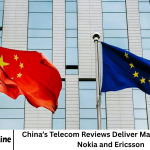In 2025, Denmark’s foreign policy stands as a model of balance between national security, international diplomacy, and global responsibility. The small Nordic nation, despite its size, continues to wield influence far beyond its borders. Denmark’s approach is rooted in principles of multilateralism, human rights, and sustainability, while also addressing emerging challenges such as cybersecurity, Arctic geopolitics, and migration. As the world navigates rising global tensions, Denmark demonstrates how smaller countries can play pivotal roles in shaping peace, cooperation, and progress.
Denmark’s membership in international organizations forms the backbone of its foreign policy. As part of the European Union, NATO, and the United Nations, Denmark leverages these platforms to advance both national and global interests. Within the EU, Denmark supports policies promoting economic stability, digital innovation, and environmental sustainability. As a NATO member, it contributes to collective defense efforts, particularly in the Arctic and Baltic regions. At the UN, Denmark is active in promoting climate action, humanitarian aid, and sustainable development, aligning its foreign policy with its domestic values.
Security has become a pressing concern for Denmark in 2025. With the Arctic region gaining strategic importance due to melting ice and new trade routes, Denmark, through its sovereignty over Greenland, finds itself at the center of geopolitical competition. The nation works closely with allies to ensure stability in the Arctic, balancing resource exploration with environmental preservation. Military investments focus on modernizing capabilities, strengthening cyber defenses, and contributing to NATO missions. While Denmark maintains a modest defense budget compared to larger powers, its targeted approach makes it an effective contributor to global security.
Cybersecurity is another critical aspect of Denmark’s foreign policy. As one of the most digitized countries in the world, Denmark faces unique vulnerabilities. State-sponsored cyberattacks, misinformation campaigns, and digital espionage pose threats not only to national security but also to democracy and public trust. Denmark addresses these risks through international cooperation, sharing expertise with allies, and investing in advanced cybersecurity infrastructure. By championing digital resilience, Denmark underscores the importance of safeguarding democracy in the digital age.
Diplomacy remains central to Denmark’s global strategy. The country actively engages in peacekeeping missions, humanitarian aid, and conflict resolution efforts. Danish diplomats are known for their ability to mediate disputes and build consensus in complex negotiations. In regions such as the Middle East and Africa, Denmark contributes both financially and through expertise to aid initiatives, supporting stability and development. These efforts reflect Denmark’s belief that diplomacy, development, and defense are interconnected pillars of security.
Human rights advocacy is a hallmark of Danish foreign policy. Denmark consistently champions freedom of expression, gender equality, and democratic governance on the global stage. It funds initiatives aimed at protecting journalists, supporting civil society, and empowering marginalized communities. In 2025, Denmark places particular emphasis on women’s rights and climate justice, recognizing the intersection between social equity and sustainable development. This approach enhances Denmark’s reputation as a principled actor committed to universal values.
Migration and refugee issues present both challenges and opportunities for Denmark’s foreign policy. As conflicts and climate change drive displacement, Denmark balances border security with humanitarian commitments. The nation participates in EU-wide efforts to manage migration, providing asylum to vulnerable groups while investing in integration programs that promote social cohesion. Denmark also invests in development projects abroad, addressing root causes of migration such as poverty, conflict, and environmental degradation.
Climate diplomacy is another cornerstone of Denmark’s international engagement. The country advocates for ambitious climate targets at global summits, pushing for stronger commitments to reduce carbon emissions and invest in renewable energy. Denmark’s leadership in offshore wind and green technologies gives it credibility as a climate champion. By sharing expertise with developing countries, Denmark strengthens international cooperation and ensures that the global transition to clean energy is inclusive and equitable.
Economic diplomacy plays an important role in Denmark’s global strategy. Trade agreements, investment promotion, and support for Danish companies abroad strengthen the nation’s economy while fostering international partnerships. Denmark’s reputation for high-quality products, sustainability, and innovation gives it a competitive edge in global markets. In 2025, the government prioritizes trade relations with the EU, North America, and Asia, diversifying markets and reducing dependency on any single region.
Despite its successes, Denmark’s foreign policy faces challenges. Rising global tensions, particularly between major powers, create uncertainties for smaller nations. Denmark must navigate carefully between allies and competitors, ensuring that its interests are protected without compromising its values. Balancing economic ties with countries that have different political systems, such as China, also requires delicate diplomacy. Furthermore, domestic debates about migration, defense spending, and EU integration influence Denmark’s foreign policy choices.
Looking ahead, Denmark’s foreign policy is likely to remain a blend of pragmatism and principle. By focusing on multilateralism, human rights, climate action, and security, Denmark ensures that its voice is heard in global debates. Its ability to combine domestic strengths with international commitments makes it a respected and influential player in world affairs. As global challenges grow more complex, Denmark demonstrates that small nations can lead by example, shaping a more peaceful, sustainable, and just world.
FAQs
What are Denmark’s main foreign policy priorities in 2025?
Security, climate diplomacy, human rights, migration management, and economic partnerships.
Why is the Arctic important for Denmark’s foreign policy?
Through Greenland, Denmark has sovereignty in the Arctic, giving it a key role in managing resources, trade routes, and security in the region.
How does Denmark address cybersecurity threats?
By investing in digital infrastructure, collaborating with allies, and promoting global standards for cybersecurity resilience.
What role does Denmark play in human rights advocacy?
Denmark funds initiatives for freedom of expression, gender equality, and climate justice, supporting democratic governance worldwide.
How does Denmark balance migration and humanitarian commitments?
By providing asylum, promoting integration, and addressing root causes of migration through international development projects.
Conclusion
Denmark’s foreign policy in 2025 illustrates the power of principled, pragmatic, and forward-looking diplomacy. By balancing security concerns with commitments to climate action, human rights, and multilateral cooperation, Denmark demonstrates that even smaller nations can exert significant global influence. Through its leadership in the Arctic, digital resilience, and humanitarian efforts, Denmark contributes to shaping a world that is safer, fairer, and more sustainable.






